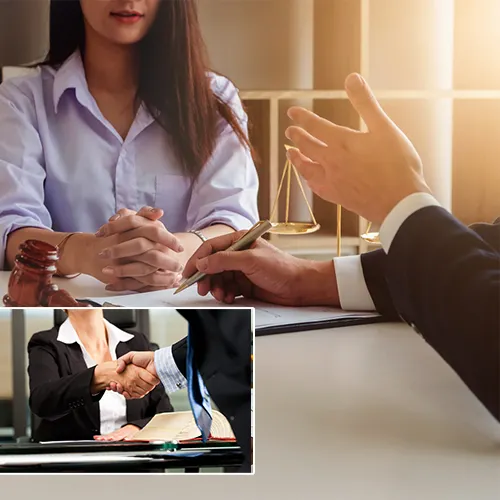Understanding Your Rights: DUI Checkpoint Legality Explained
Table of Contents []
DUI Checkpoint Legality
Understanding the Legality of DUI Checkpoints

At Fowler Law Firm PC, we recognize the gravity of the issues that arise with DUI checkpoints. As much as they are a tool for promoting road safety, there is ongoing debate about their legal standing. It is our mission to offer comprehensive resources to help you understand the complex legal landscape of DUI checkpoints. We aim to equip you with knowledge about your rights and the proper protocols that law enforcement agencies are bound by, enabling you to make informed decisions.
DUI checkpoint legality often hinges on balancing public safety against individual rights. Our goal is to shed light on these matters so that you can face these situations with confidence. If you find yourself needing more than just information, we are ready to connect you with skilled attorneys. To reach out for questions or to book an appointment, do not hesitate to call (512) 819-6801.
What Are DUI Checkpoints?
DUI checkpoints, also known as sobriety checkpoints, are roadblocks set up by law enforcement to check drivers for impairment due to alcohol or drugs. These checkpoints are designed to deter impaired driving and increase road safety. However, their legality can vary depending on state laws and specific case rulings.
The Supreme Court has deemed DUI checkpoints constitutionally permissible under certain conditions, establishing a precedent nationwide. However, individual states have the autonomy to implement their own restrictions or to outlaw them entirely.
How Do DUI Checkpoints Operate?
During a DUI checkpoint, officers may briefly stop vehicles, check for signs of impairment, and conduct field sobriety tests if necessary. It is crucial that these checkpoints are carried out in a manner consistent with legal requirements, such as providing advance public notice and using a neutral formula for stopping vehicles.
Checkpoint operations should also be limited in scope and duration to minimize intrusiveness while still serving public safety interests. Any deviation from established guidelines may result in checkpoint findings being challenged in court.
Your Rights at a DUI Checkpoint
You have constitutional rights that remain in effect at DUI checkpoints. These include the right to avoid self-incrimination and to refuse consent for a search of your vehicle. Knowing your rights can help you navigate these interactions more effectively.
It's important to remember that cooperation with basic requests, such as presenting your driver's license, is typically required. Our resources can guide you through the nuances of exercising your rights respectfully and legally.
Seeking Legal Assistance
If you believe your rights have been violated at a DUI checkpoint, legal recourse is available. An experienced attorney can evaluate the specifics of your case and provide guidance on the best course of action.
Our network of attorneys specializes in DUI laws and can offer comprehensive legal support. To schedule a consultation, please call us at (512) 819-6801.
Navigating DUI Checkpoint Procedures

At Fowler Law Firm PC, we emphasize the importance of understanding proper DUI checkpoint procedures. Law enforcement officials must adhere to strict protocols to ensure that these checkpoints are legal and effective. We provide detailed insight into what you should expect if you approach a DUI checkpoint, bolstering your ability to protect your rights.
DUI checkpoints are not random operations. They must follow a predetermined plan that aligns with both federal and state guidelines to avoid claims of discrimination or unlawful seizure. Knowledge of these guidelines empowers civilians to recognize any irregularities in checkpoint operations.
The Planning of DUI Checkpoints
Effective planning is the cornerstone of lawful checkpoint operations. Law enforcement agencies are required to outline operational details and objectives prior to setting up a checkpoint. This planning includes selecting a location, setting up proper signage, and establishing procedures for stopping vehicles.
Detailed planning ensures a systematic approach that treats all motorists equally and reduces the risk of legal challenges. Moreover, agencies often need to publicize checkpoint schedules in advance, which is something drivers can look out for.
Conduct at Checkpoints
Behavior at checkpoints, by both the police and the public, is governed by law. While police are trained in proper conduct during these operations, it is advantageous for you to be aware of how officers should act. This includes being aware of discriminatory behavior or excessive questioning without cause.
As a driver, maintaining composure, being polite, and complying with basic requests will generally result in a less confrontational experience. Should an issue arise, having calmly noted any irregularities can be essential when seeking legal advice.
Documentation and Evidence
Documentation is a key element in ensuring the legality of DUI checkpoints. Law enforcement must keep records of the checkpoint's results, the process used to stop vehicles, and any arrests or citations issued.
As a driver, you should also consider documenting your experience, especially if you have concerns about how the checkpoint was conducted. Such documentation may be useful in a legal setting.
Refusals and Searches
At a checkpoint, you have the right to refuse to partake in a field sobriety test or to have your vehicle searched without probable cause. Understanding the legal boundaries of these refusals can prevent any unnecessary escalation during the encounter.
However, keep in mind that certain refusals, such as declining a breathalyzer without a valid reason, may have legal implications. Our attorneys can clarify these points for you.
Your Legal Protections and How to Assert Them

Fowler Law Firm PC places great importance on familiarizing the public with the legal protections available at DUI checkpoints. Knowing your rights is the first line of defense against potential violations. Asserting your rights effectively requires a combination of knowledge, confidence, and tact.
While it is within your interests to comply with general law enforcement requests, you are also entitled to refrain from self-incriminating actions. Balancing these considerations can be challenging, but our guides and resources aim to make this easier for you.
Miranda Rights and DUI Checkpoints
- If you are detained at a checkpoint, you must be read your Miranda rights before any interrogation.
- Understanding these rights allows you to make informed decisions about cooperating with further questioning or searches.
- It is legally permissible to remain silent beyond providing identification and proof of insurance.
Handling Questioning
When approached with questions beyond basic identification, you can politely decline to answer without legal consequence. Phrases like "I choose not to answer" convey your decision without inciting confrontation.
An awareness of your right to decline answering certain questions can prevent officers from obtaining information that may be used against you.
Consenting to Searches
To search your vehicle, law enforcement typically needs either probable cause or your consent. Knowing that you have the right to decline a search can spare you from potential complications.
Asserting this right should be done respectfully, with clear communication that you do not consent to a search without a warrant or valid reason.
Field Sobriety and Chemical Tests
Those requested to perform a field sobriety test or submit to a chemical test have the option to decline. However, it is essential to be aware of implied consent laws which may result in penalties for refusing a chemical test.
An attorney from our team can advise you on the consequences of refusing a test in your specific jurisdiction.
Connecting with Expert Legal Help

We at Fowler Law Firm PC understand the stress and confusion that can accompany an encounter at a DUI checkpoint. Whether you require clarification on legal points or need representation, our team stands ready to assist. We pride ourselves on connecting individuals with expert attorneys who specialize in DUI laws and can aggressively advocate for your rights.
If you are facing charges or have concerns about a checkpoint encounter, proactive legal counsel is invaluable. Reach out to us, and we'll guide you through the process. Call us now at (512) 819-6801 to book your appointment.
Comprehensive Legal Support
Our network of attorneys possesses a deep understanding of DUI laws and checkpoint regulations. They can guide you through the intricacies of your case, providing competent legal support that addresses your specific needs.
Whether it's assessing the legality of a checkpoint or representing you in court, our attorneys bring a wealth of experience and a strong track record of successful advocacy.
Preparing for Your Consultation
A productive legal consultation requires preparation. Bring any documentation or notes related to your DUI checkpoint encounter. Being organized will help your attorney understand your situation better and develop an appropriate legal strategy.
Don't hesitate to list any questions or concerns you may have. An informed dialogue will enhance the effectiveness of your legal support experience.
Understanding the Legal Process
Navigating the legal system can be daunting. Our attorneys will walk you through each step, from the initial assessment of your case to potential court proceedings. They're committed to demystifying the legal process for you.
Clear communication and a personalized approach ensure that you're never left in the dark about your legal journey.
Legal Strategy and Defense
A robust legal strategy is crucial in defending against DUI charges. Our attorneys work closely with you to build a defense that considers all the facts of your case, leveraging their expertise to challenge any questionable evidence or procedural missteps.
Together, we fight for a favorable outcome, leveraging every legal resource at our disposal.
Contact Fowler Law Firm PC for Informed Legal Assistance

Empowerment through education is a core principle at Fowler Law Firm PC. We strive to provide you with the essential resources to understand DUI checkpoint legality and to assert your rights effectively. Should you require legal guidance or representation, our dedicated attorneys are just a phone call away. For inquiries or to schedule a consultation, dial (512) 819-6801 today.

